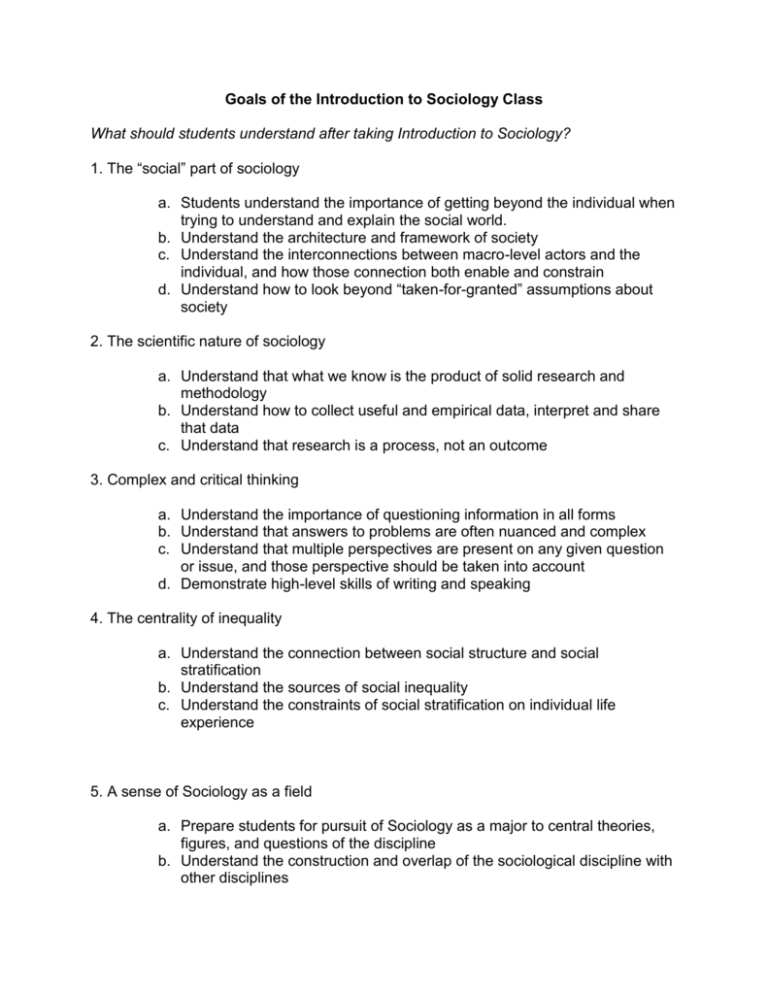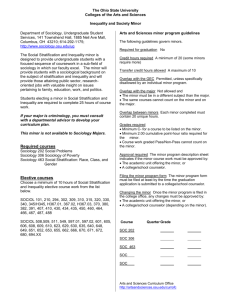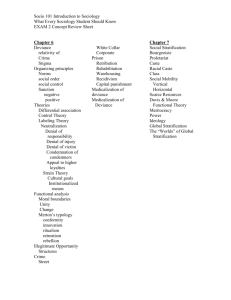Goals of Intro to Sociology
advertisement

Goals of the Introduction to Sociology Class What should students understand after taking Introduction to Sociology? 1. The “social” part of sociology a. Students understand the importance of getting beyond the individual when trying to understand and explain the social world. b. Understand the architecture and framework of society c. Understand the interconnections between macro-level actors and the individual, and how those connection both enable and constrain d. Understand how to look beyond “taken-for-granted” assumptions about society 2. The scientific nature of sociology a. Understand that what we know is the product of solid research and methodology b. Understand how to collect useful and empirical data, interpret and share that data c. Understand that research is a process, not an outcome 3. Complex and critical thinking a. Understand the importance of questioning information in all forms b. Understand that answers to problems are often nuanced and complex c. Understand that multiple perspectives are present on any given question or issue, and those perspective should be taken into account d. Demonstrate high-level skills of writing and speaking 4. The centrality of inequality a. Understand the connection between social structure and social stratification b. Understand the sources of social inequality c. Understand the constraints of social stratification on individual life experience 5. A sense of Sociology as a field a. Prepare students for pursuit of Sociology as a major to central theories, figures, and questions of the discipline b. Understand the construction and overlap of the sociological discipline with other disciplines 6. The social construction of ideas a. Understand the constructed nature of ideas such as race and gender b. Understand how our constructions differ from the constructions of other societies c. Understand that all constructions are valid expressions of the society they emerge from 7. The difference between Sociology and other social sciences a. Understand the unique perspective of sociology on social institutions, the construction of those institutions, and their implications for individual agency 8. The importance of trying to improve the world a. Use the understanding students have gained to effect real and positive change in the world










